
On November 30, 1874, future British Prime Minister Winston Churchill was born in Woodstock, England.
Churchill was born to an aristocratic British family, the son of a New York socialite who married an English lord. He was descended from the Dukes of Marlborough, a branch of the Spencer family (of which Princess Diana was also a member). He spent part of his childhood in Dublin, Ireland, before attending school.
As a child, Churchill was an independent and unruly student with a stutter and a lisp. After he was sent to a boarding school, he enrolled in the Harrow Rifle Corps, beginning his military career. Churchill initially struggled – he had to take the exam for the British Royal Military College three times. But he proved to be an excellent student once admitted and graduated 20th in his class of 130.
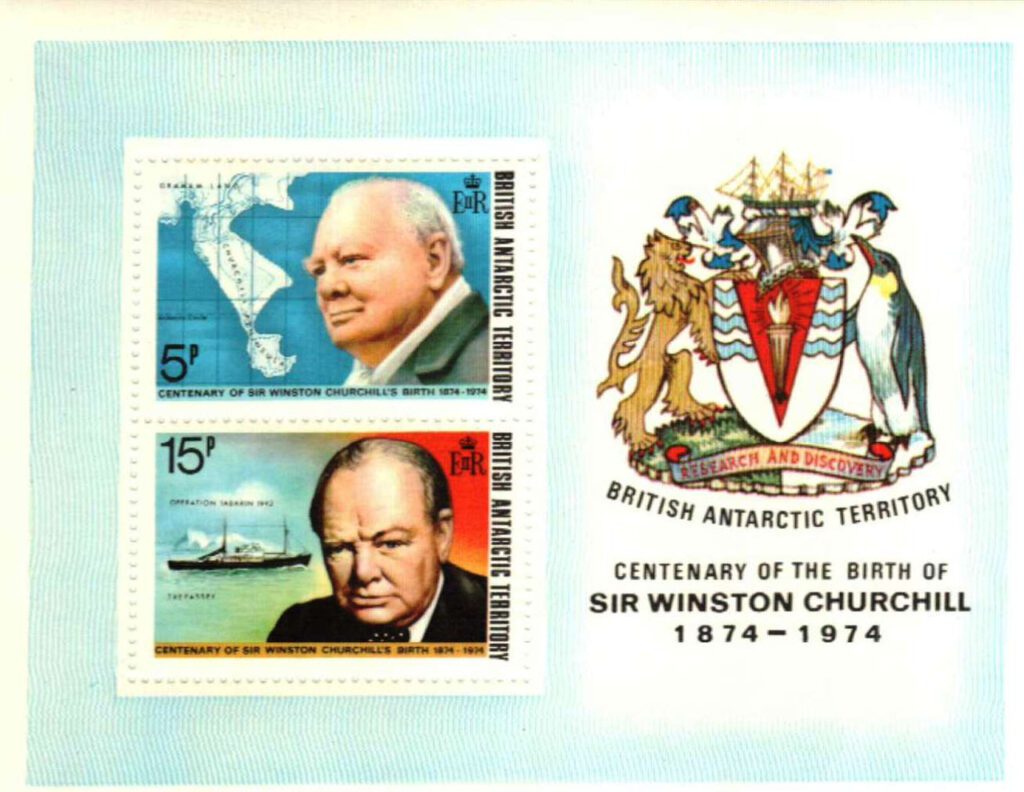
After graduating, Churchill joined the Fourth Hussars and spent four years serving in the army; during this time he also worked as a war correspondent. He went to Cuba in 1895 to write about the Cuban War of Independence. From there he traveled to America briefly, back to England, then to Bombay, British India and the North West Frontier of India. He saw bloody fighting there and wrote about it for several newspapers. Churchill was then transferred to the Sudan where he participated in the Battle of Ordurman.
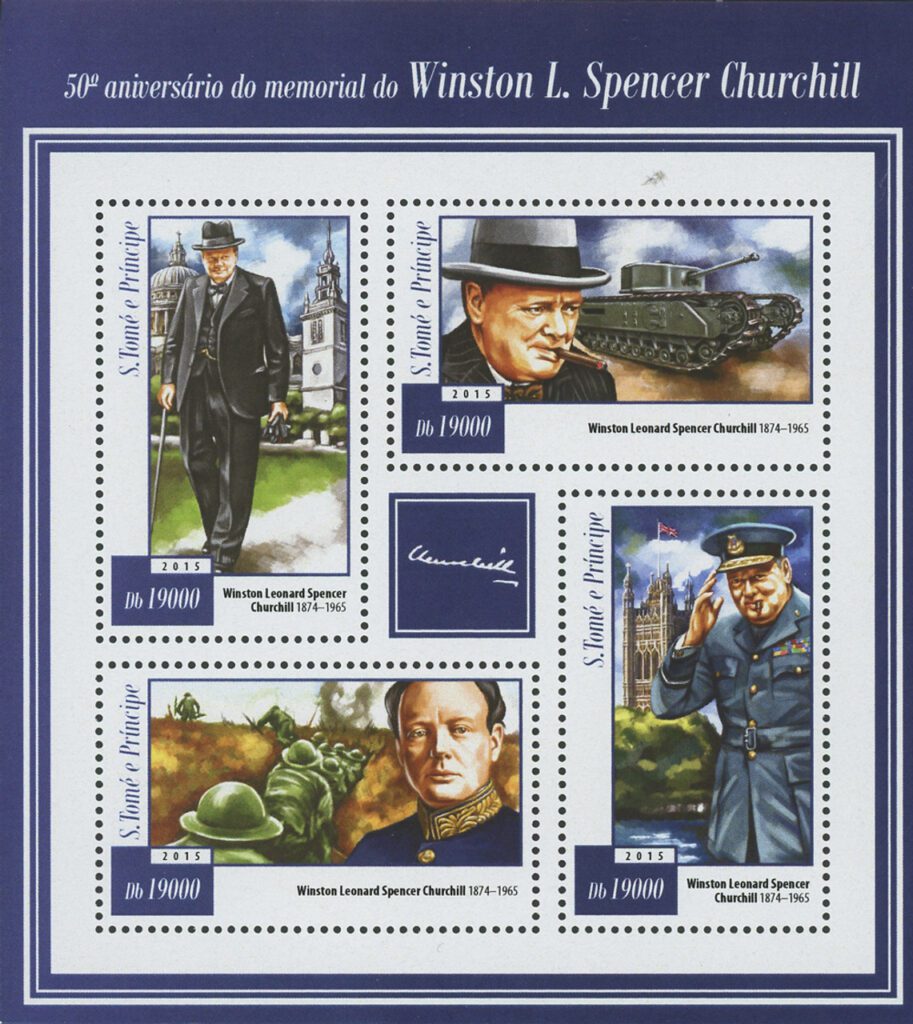
Churchill decided to leave the army in 1899 to become a full-time war correspondent for the Morning Post. During this service, he reported on the Boer War in South Africa. While on a scouting expedition, he was taken prisoner by the Boers. He eventually managed to escape and travel 300 miles to safety. After he returned to England, Churchill wrote about this experience in London to Ladysmith.
Churchill entered politics in 1900 as a member of Parliament for Oldham in Manchester. In 1908, he was appointed to the prime minister’s cabinet as president of the Board of Trade. In that role he opposed expanding the British Navy and introduced a number of reforms to the prison system, set the first minimum wage, and established labor exchanges for the unemployed as well as unemployment insurance. Churchill was also crucial to the passage of the People’s Budget, which imposed new taxes on the wealthy to fund social welfare programs.
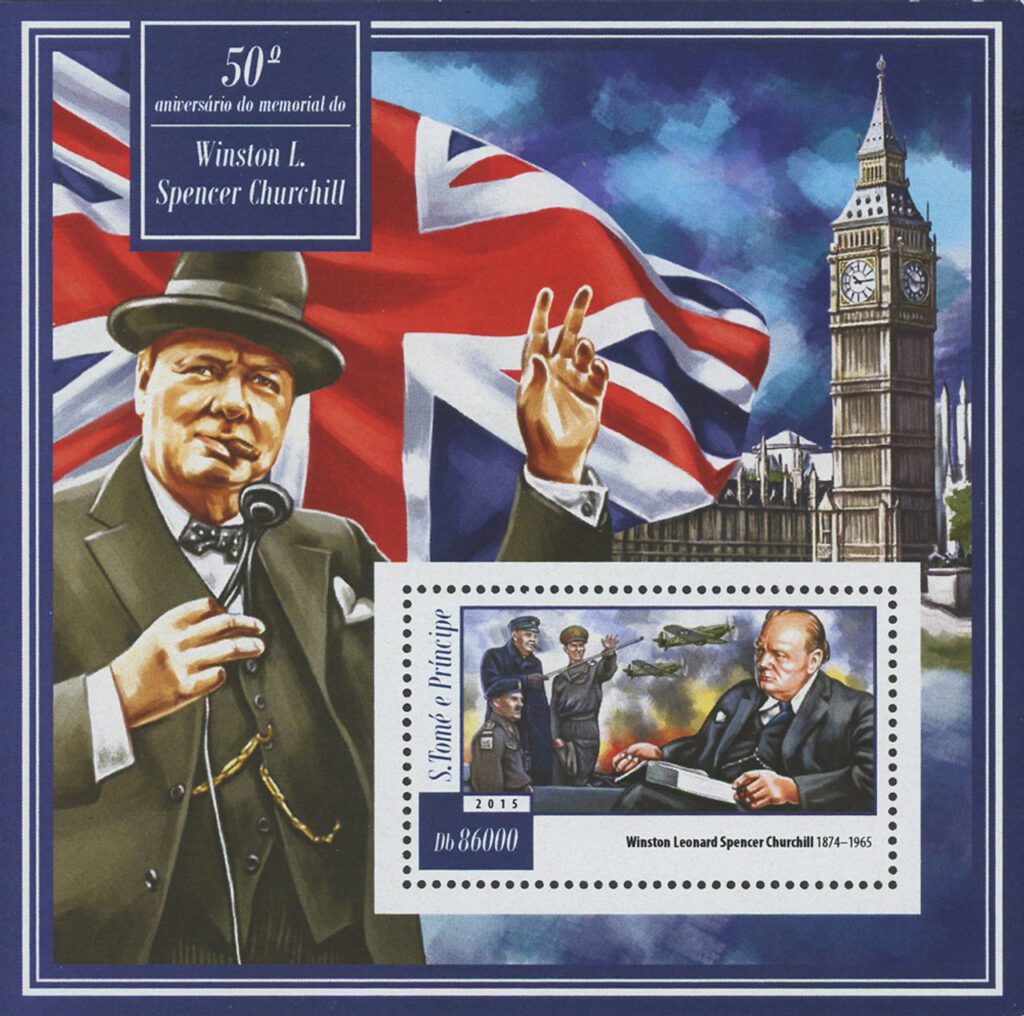
In 1911, Churchill was elected First Lord of the Admiralty for the first time. In that role he helped to modernize the navy and promoted military aircraft in preparation for World War I. Churchill left politics during the war following the devastating Battle of Gallipoli. He briefly rejoined the army and commanded a battalion of the Royal Scots Fusiliers on the Western Front. He was then appointed minister of munitions in 1917, responsible for the production of tanks, planes, and munitions.
Beginning in 1919, Churchill served as minister of war and air and colonial secretary. He switched political parties in the 1920s and lost his position in parliament. He then spent the next few years focusing on his writing, particularly, A History of English Speaking Peoples.
As Adolf Hitler rose to power, Churchill argued for British rearmament. By 1938, he had become a staunch opponent of British Prime Minister Neville Chamberlain’s policy of appeasement toward the Nazis. On the day England declared war on Germany, Churchill was appointed First Lord of the Admiralty and a member of the War Cabinet. In April 1940, Germany invaded Norway, which was a setback for Chamberlain. Churchill, however, had argued for occupying that country’s iron mines and seaports. Parliament quickly gave Chamberlain a vote of no confidence. King George VI appointed Churchill Prime Minister and Minister of Defense on May 10. Within hours, Germany began its Western Offensive, invading the Netherlands, Belgium, and Luxembourg, followed by France two days later.
Britain faced the full Nazi onslaught by itself, but Churchill formed a powerful coalition at home and built an alliance with the United States and the Soviet Union. By March 1941, Britain was able to order war goods from the US on credit through the Lend-Lease Act.
Once the US entered World War II, Churchill became certain the Allies would win the war. He worked with Roosevelt and Stalin to plan the Allied war strategy and for building a post-war world with the United Nations as its centerpiece.
Churchill was defeated in the 1945 general election but remained active as the leader of the opposition party. During a 1946 visit to the US, he warned of Soviet domination in his “Iron Curtain” speech. Churchill was later appointed to serve as Great Britain’s Minister of Defense and Prime Minister in 1951. Two years later he received the Nobel Prize in Literature for his many published works.
A series of strokes led to Churchill’s retirement in 1955, although he remained a member of Parliament until 1964. One year prior he was the first of just eight people to be made an honorary US citizen. Churchill passed away on January 24, 1965, leading to over a week of mourning in Great Britain.
Click here for more Churchill stamps and covers.
Click here to read and listen to some of Churchill’s speeches and letters and click here to view some of his paintings.
Discover what else happened on This Day in History.

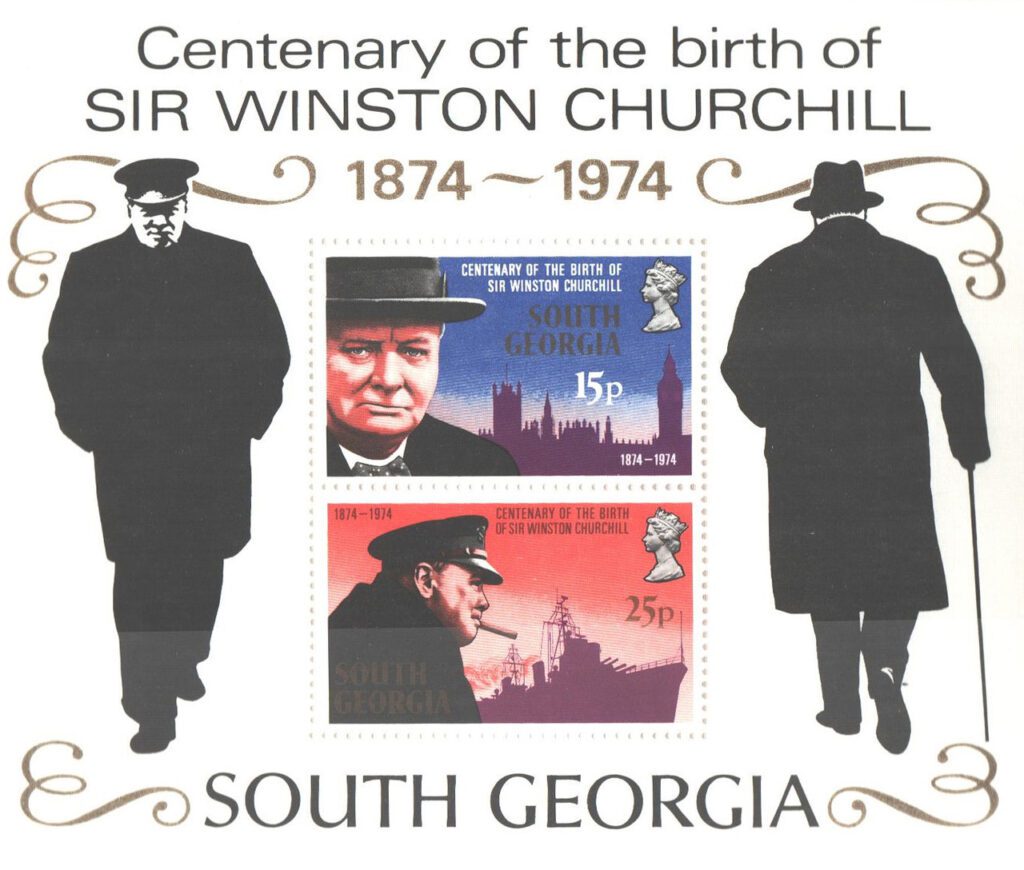
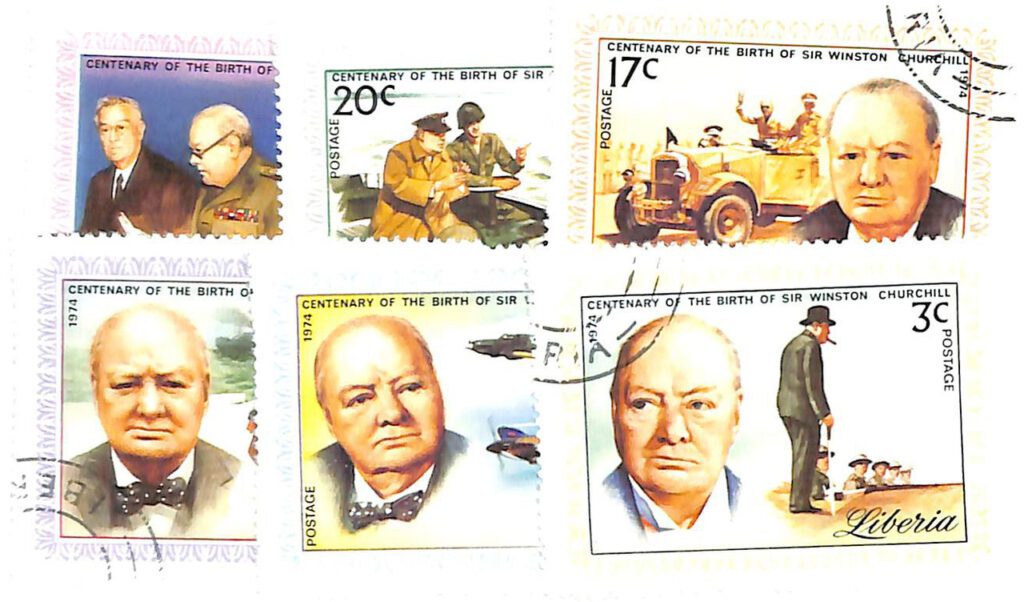
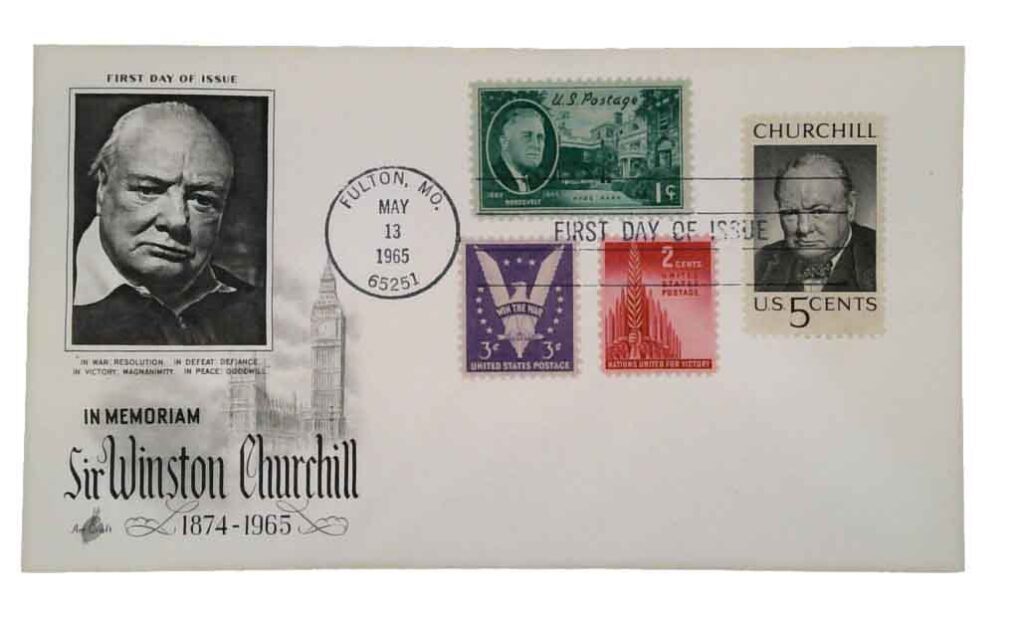
A great leader, a real visionary
A great man who lead Great Britain through some of its darkest days. If England (and the world) had listened to his strong opposition to Chamberlain’s appeasement towards the Nazis many lives may have been saved.
He was not elected to the post of First Lord of the Admiralty (the British equivalent of our Sec. of the Navy), he was appointed to that post by the PM at the time. Ironically, the Norway fiasco that led to Chamberlain’s fall in 1940 was Churchill’s concept.
Great men recognize evil and conquer it. God rest his soul.
Thank you Mr Bond, James Bond, and Dr Roger T. Zeimet. Lord Chamberlain believed that his continual meeting with Hitler, would prevent war with England. As he remarked: “If you don’t succeed, try, try again. All of us history buffs know what happened in a short span of time. “The Battle of Britain”. As the British High Command was discussing, and arguing, the Third Reich’s Wehrmacht was gobbling up one European country after the other. How many lives may have been prolonged